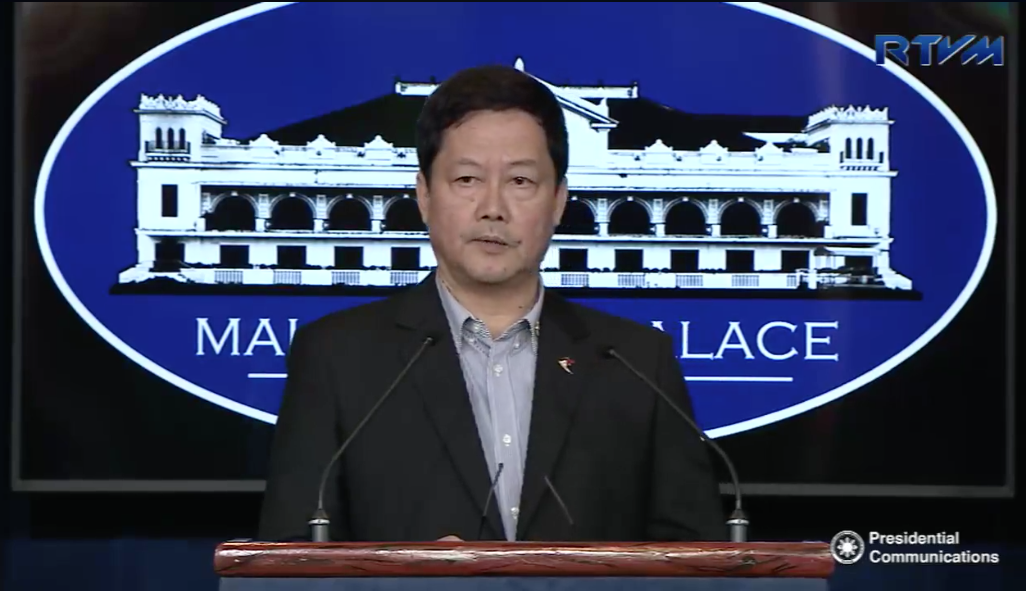
MANILA — The nearly 2,000 heinous crime convicts freed early on the basis of a wrong interpretation of the Good Conduct Time Allowance Law (RA 10592) may be rearrested without a warrant of arrest for committing the crime of evasion of a sentence, Justice Secretary Menardo Guevarra said on Thursday.
During the House Committee on Appropriations hearing on the proposed Department of Justice (DOJ) budget for 2020, Guevarra was asked how the agency would carry out the “very decisive” order of President Rodrigo Duterte to arrest the 1,914 heinous crime convicts.
Duterte gave the convicts, who have been “unlawfully” released since 2014 on the basis of good conduct, to turn themselves in within 15 days.
Guevarra told the lawmakers that the DOJ is studying two possible ways in dealing with the situation, both of which are based on the case of People of the Philippines vs. Fidel Tan.
In the case, Tan, an inmate at the Samar provincial jail, was released by the provincial jail warden earlier than his full prison term because of good conduct credits.
But the SC found no justification to back the warden for “usurping the authority of the Director of Prisons” in granting the man good credit time allowances.
“Article 99 of the Revised Penal Code vests such authority exclusively on the Director and no one else,” the High Court ruled.
In its 1967 ruling, the SC also noted that even assuming that Tan was entitled to the GCTA, his release was “premature” because his good conduct time allowances were miscalculated.
“If we are to follow the ruling in People vs. Tan in 1967, it would appear that there was a court order that was first secured. It will be the courts which would issue the order for the re-commitment of the inmate that was prematurely released on account of erroneous computation of good conduct time allowance,” Guevarra said.
“However, what the President ordered last night (Wednesday) was a bit different but, in my opinion, would be a more speedy way of doing it,” he said.
Following President Duterte’s order, he said if the persons deprived of liberty (PDLs) freed on account of GCTA failed to turn themselves in to either the police or the military after the 15-day grace period, they could be considered “fugitives of justice.”
“We may view this situation as something like an evasion of a sentence. In other words, you were given an opportunity to surrender to complete your service, and you refused without justification, then you are evading your sentence,” the Justice Secretary said.
“And if you are evading your sentence, you are committing another crime. And that is a continuing crime for each day, each hour, each minute that you do not comply with your sentence. For that reason, even a warrantless arrest may be possible because it is a continuing offense. And any officer of the law, and even a private individual, under our rules of court, may have the authority to arrest a person committing a crime in his presence,” Guevarra said.
Guevarra said re-arresting the unlawfully-freed inmates would not be in violation of the rule of double-jeopardy.
In law, the double jeopardy clause prohibits second prosecutions after either acquittal or conviction and prohibits multiple punishments for the same offense.
“Following the ruling in People vs. Tan, they have not completed the service of their sentence, and they ought to return to their place of imprisonment so that they can complete the service of their sentence without violating or incurring the rule of double jeopardy,” Guevarra said.
In the 1967 ruling, the SC noted that: “The prisoner’s re-arrests would not place him twice in jeopardy because his re-incarceration is merely a continuation of the penalty that he had not completely served due to the erroneous act of the warden, it is not a new or subsequent conviction.”
“Neither would his rearrest deprive him of liberty without due process of law, because he was not yet entitled to liberty at the time he was released. Service of penalties and allowance for good conduct are specifically, even elaborately, governed by the Penal Code and do not depend upon the good faith of the warden and of the prisoner,” the SC said.